India's Clean Plant Program
Plant Clean, Grow Clean
Dedicated to enhancing fruit crop growers’ access to certified disease-free planting materials of key fruit crops across India.
India's Clean Plant Program
Collaborate, Innovate, Cultivate!
Dedicated to enhancing fruit crop growers’ access to certified disease-free planting materials of key fruit crops across India.
India's Clean Plant Program
Clean Start for a Thriving Harvest
Dedicated to enhancing fruit crop growers’ access to certified disease-free planting materials of key fruit crops across India.
India's Clean Plant Program
Empowering Growers, Strengthening Futures!
Dedicated to enhancing fruit crop growers’ access to certified disease-free planting materials of key fruit crops across India.
What is Clean Plant Program ?
India’s Clean Plant Program (CPP) is a novel initiative by the Government of India, to ensure healthy and disease-free quality planting material of key fruit crops which will enhance the productivity and profitability of farmers, ultimately leading to the global competitiveness.
Why CPP ?
India’s fruit productivity remains below the global average despite significant investments in infrastructure. A major reason is the widespread use of poor-quality planting material, often infected with systemic pathogens-especially viruses. In addition, the …
Who We Are ?
The Clean Plant Program (CPP) is conceptualized by Ministry of Agriculture & Farmers Welfare, Government of India in collaboration with the Asian Development Bank. The NHB serves as an implementing and executing agency in association with ICAR, which oversees technical progress and facilitates capacity building.
What we do ?
With support from Indian Council of Agricultural Research (ICAR), National Horticulture Board (NHB) will establish crop-specific Clean Plant Centers (CPCs). These Centers will oversee the testing, clean-up, maintenance, and distribution of clean Generation 1 (G1) planting material. Accredited nurseries will obtain G1 material for multiplication. Before reaching…

What is Clean Plant Program ?
India’s Clean Plant Program (CPP) is a novel initiative by the Government of India, to ensure healthy and disease-free quality planting material of key fruit crops which will enhance the productivity and profitability of farmers, ultimately leading to the global competitiveness.
Why CPP ?
India’s fruit productivity remains below the global average despite significant investments in infrastructure. A major reason is the widespread use of poor-quality planting material, often infected with systemic pathogens-especially viruses. In addition, the …
Who We Are ?
The Clean Plant Program (CPP) is conceptualized by Ministry of Agriculture & Farmers Welfare, Government of India in collaboration with the Asian Development Bank. The NHB serves as an implementing and executing agency in association with ICAR, which oversees technical progress and facilitates capacity building.
What we do ?
With support from Indian Council of Agricultural Research (ICAR), National Horticulture Board (NHB) will establish crop-specific Clean Plant Centers (CPCs). These Centers will oversee the testing, clean-up, maintenance, and distribution of clean Generation 1 (G1) planting material. Accredited nurseries will obtain G1 material for multiplication. Before reaching…
Key Fruit Crops Covered under the Program

Pomegranate
Pomegranate
India contributes over 50% to global pomegranate production, with 281,000 hectares under cultivation and a production volume of 3.3 million metric tons in 2023. Major growing states include Maharashtra, Karnataka, Gujarat, Andhra Pradesh, and Tamil Nadu, with Maharashtra alone accounting for over 90% of India’s exports (Indiastat).
Average productivity is 11–12 tonnes/ha, reaching up to 20 tonnes/ha in modern orchards using drip irrigation and clean planting material. In 2023, India exported over 63,000 metric tons, valued at ₹500 crore, mainly to Bangladesh, UAE, Netherlands, Saudi Arabia, and Russia (APEDA).
The crop, however, is prone to plant diseases and plant viral infections that severely impact yield and fruit quality. The Clean Plant Program plays a crucial role by establishing facilities to provide certified, disease-free planting material, thereby supporting farmers with healthier plants, better yield, and improved access to global markets through phytosanitary compliance.
Clean Plant Center for Pomegranate
Location
ICAR-National Research Center on Pomegranate (NRCP), NH-65, Solapur-Pune Highway, PO, Kegaon, Maharashtra, India-413255
Website

Almond
Almond
Almond cultivation in India is concentrated in Jammu & Kashmir and Himachal Pradesh covering about 5,407 hectares with a production of 10,951 metric tons in 2024. Despite growth potential, domestic production remains limited, resulting in significant imports to meet demand.
Key viral threats include Prunus necrotic ringspot virus (PNRSV), Prune dwarf virus (PDV), Apple chlorotic leaf spot virus (ACLSV), and Apple mosaic virus (ApMV), which are often latent and spread through infected propagation materials, impacting orchard health and productivity.
The Clean Plant Programme (CPP) addresses these issues by providing certified, virus-free planting materials through Clean Plant Centers, aiming to boost orchard productivity, fruit quality, and India’s competitiveness in the global almond market.
Clean Plant Center for Almond
Location 1
ICAR-Central Institute for Temperate Horticulture (CITH), Old AirPort Road, Rangreth, Srinagar, Jammu and Kashmir, India-190007
Website
Location 2
ICAR-Central Institute for Temperate Horticulture (CITH), CITH Building, CITH Rd, Mukteshwar, South Gola Range, Uttarakhand, India-263132
Website

Mangoes
Mango
India is the world’s largest producer of mangoes, cultivating approximately 2.4 million hectares and yielding around 24.5 million metric tons in 2023–24. Major mango-producing states include Uttar Pradesh, Andhra Pradesh, Odisha, Gujarat, and Maharashtra. While average productivity stands at about 10.2 tonnes per hectare, well-managed orchards can achieve yields between 20 to 30 tonnes per hectare (Indiastat).
In the 2023–24 period, India exported approximately 32,104 metric tons of fresh mangoes, valued at $60.14 million, with key markets including the United Arab Emirates, United States, United Kingdom, Saudi Arabia, and Netherlands (APEDA).
The Clean Plant Program, backed by the Government of India, ensures the production and supply of certified, disease-free planting material via Clean Plant Centers to help farmers improve productivity, reduce losses, and meet international phytosanitary standards.
Clean Plant Center for Mango
Location 1
ICAR-Central Institute for Subtropical Horticulture (CISH), Rehmankhera, P.O, Kakori, Lucknow, Uttar Pradesh, India-226101
Website
Location 2
ICAR-Central Institute for Subtropical Horticulture (CISH), Regional Research Station (RS), At- Madhavnagar, Post- Mokdumpur, PS, Dist, Malda, West Bengal-732103
Website
https://cish.icar.gov.in/malda_n.php
Location 3
ICAR-Indian Institute of Horticultural Research (IIHR), Hessaraghatta lake post, IIHR Main Rd, Indian Institute of Horticultural Research, Ivar Kandapura, Bengaluru, Karnataka, India-560089
Website

Pear
Pear
India is among the top pear-producing countries with an estimated 44,400 hectares under cultivation and an annual production of about 323,000 metric tons, primarily in Jammu & Kashmir, Himachal Pradesh, Uttarakhand, Punjab, and Uttar Pradesh. Pear productivity averages 7.3 tonnes/ha, but potential for improvement exists through use of high-quality, virus-free planting material.
One of the biggest threats to pear production is viral infections, particularly Pear Vein Yellows Virus (PVYV), Apple Mosaic Virus (ApMV), and Apple Chlorotic Leaf Spot Virus (ACLSV), all of which can be transmitted through infected grafts and rootstocks. These viruses often result in reduced vigor, fruit deformation, poor yield, and shortened tree life.
The Clean Plant Program, launched by the Indian government, focuses on supplying certified disease-free planting materials through Clean Plant Centers, helping to combat the silent but devastating impact of latent viral infections.
Clean Plant Center for Pear
Location 1
ICAR-Central Institute for Temperate Horticulture (CITH), Old AirPort Road, Rangreth, Srinagar, Jammu and Kashmir, India-190007
Website
Location 2
ICAR-Central Institute for Temperate Horticulture (CITH), CITH Building, CITH Rd, Mukteshwar, South Gola Range, Uttarakhand, India-263132
Website

Litchi
Litchi
India is the world’s second-largest producer of litchi, cultivating 99,170 hectares and yielding approximately 737,200 metric tons annually, with an average productivity of 7.43 tonnes/ha. Major producing states include Bihar, West Bengal, Uttar Pradesh, Jharkhand, and Uttarakhand, with Bihar accounting for nearly 40% of the national output.
In 2023–24, India exported 12,300 metric tons of litchi to markets such as the United States, Qatar, Netherlands, Indonesia, and the UAE.
Litchi cultivation faces challenges from plant diseases, which are often worsened by infected planting materials. The Clean Plant Programme (CPP) aims to provide certified, disease-free planting materials, improving productivity, fruit quality, and ensuring compliance with international standards, enhancing India’s position in the global litchi market.
Clean Plant Center for Litchi
Location 1
ICAR-Central Institute for Subtropical Horticulture (CISH), Rehmankhera, P.O, Kakori, Lucknow, Uttar Pradesh, India-226101
Website
Location 2
ICAR-Central Institute for Subtropical Horticulture (CISH), Regional Research Station(RS), At- Madhavnagar, Post- Mokdumpur, PS, Dist, Malda, West Bengal-732103
Website

Grapes
Grapes
India is a major global grape producer, with 175,930 hectares under cultivation and a yield of 2.95 million metric tons in 2023–24. The average productivity is 16.8 tonnes per hectare, with Maharashtra contributing over 67% of national output. Other key states include Karnataka, Tamil Nadu, Andhra Pradesh, and Mizoram (Indiastat).
In 2023–24, India exported 343,982 metric tons of fresh grapes, valued at ₹3,460.70 crore (USD 417.07 million), mainly to the Netherlands, United Kingdom, UAE, Russia, and Bangladesh (APEDA).
However, grape cultivation faces challenges from viral diseases such as Grapevine Leafroll Disease (GLD), associated with Grapevine Leafroll-Associated Viruses (GLRaV-1, GLRaV-3, GLRaV-4), and Rupestris Stem Pitting-Associated Virus (RSPaV). These viruses can lead to symptoms like leaf discoloration, reduced fruit quality, and overall vine decline, impacting yield and marketability.
The Clean Plant Program addresses these challenges by supplying certified planting material through Clean Plant Centers, helping improve vine health, fruit quality, and international compliance for export.
Clean Plant Center for Grapes
Location
ICAR-National Research Centre for Grapes, Manjiri Farm, P. B. No. 3, Solapur Rd, Pune, Maharashtra, India-412307
Website

Apple
Apple
India ranks among the top apple producers globally, with 304,000 hectares under cultivation in 2023. Major growing regions include Jammu & Kashmir, Himachal Pradesh, and Uttarakhand, with expansion in Arunachal Pradesh and Nagaland (Indiastat).
In 2023–24, production is estimated at 2.41 million metric tons, driven by favourable weather. However, average productivity remains low at 9.46 tonnes/ha, due to viral diseases like Apple Mosaic Virus (ApMV), Apple Stem Grooving Virus (ASGV), and Apple Scar Skin Viroid (ASSVd), often spread through infected planting material.
The Clean Plant Programme (CPP) addresses these challenges by providing certified, virus-free planting material, aiming to enhance orchard productivity, longevity, and India’s competitiveness in domestic and export markets.
Clean Plant Center for Apple
Location 1
ICAR-Central Institute for Temperate Horticulture (CITH), Old AirPort Road, Rangreth, Srinagar, Jammu and Kashmir, India-190007
Website
Location 2
ICAR-Central Institute for Temperate Horticulture (CITH), CITH Building, CITH Rd, Mukteshwar, South Gola Range, Uttarakhand, India-263132
Website

Avocado
Avocado
Avocado or butter fruit is an emerging crop in India with about 1,000 hectares under cultivation in 2023, mainly in Karnataka, Kerala, Tamil Nadu, and parts of Maharashtra.
Domestic consumption is rising but exports remain limited at 14.8 metric tons valued at $47,960 in 2023, primarily to Bhutan. The crop holds strong growth potential due to increasing demand and suitable agro-climatic conditions.
A key challenge is Avocado Sunblotch Viroid (ASBVd), which can cause up to 30% yield loss, often remaining asymptomatic and difficult to detect.
The Clean Plant Programme (CPP) supports avocado growers by providing certified, virus-free planting material through specialized Clean Plant Centers.
Clean Plant Center for Avocado
Location
ICAR-Indian Institute of Horticultural Research (IIHR), Hessaraghatta lake post, IIHR Main Rd, Indian Institute of Horticultural Research, Ivar Kandapura, Bengaluru, Karnataka, India-560089
Website

Dragon Fruit
Dragonfruit
Dragon fruit is gaining popularity in India due to its high profitability and adaptability. In 2023, the cultivation area is approximately 3,000–4,000 hectares, with plans to expand to 50,000 hectares in the next five years. Major producing states include Karnataka, Maharashtra, Gujarat, Kerala, Tamil Nadu, Odisha, West Bengal, Andhra Pradesh, Telangana, and the Andaman & Nicobar Islands.
The average yield ranges from 8.0 to 10.5 tonnes/ha, with potential for higher productivity under optimal management. However, India imported 3,100 shipments of dragon fruit between October 2023 and September 2024, primarily from Vietnam, China, and the US.
Key viral diseases affecting cultivation include Cactus virus X and Zygocactus virus X, both of which cause symptoms like necrotic spots and reduced plant vigor.
The Clean Plant Programme (CPP) aims to provide certified, virus-free planting materials to improve productivity, fruit quality, and compliance with international standards, enhancing India’s position in the global dragon fruit market.
Clean Plant Center for Dragonfruit
Location
ICAR-Indian Institute of Horticultural Research (IIHR), Hessaraghatta lake post, IIHR Main Rd, Indian Institute of Horticultural Research, Ivar Kandapura, Bengaluru, Karnataka, India-560089
Website

Guava
Guava
India leads global guava production, contributing about 45% of the total, with 5.59 million metric tons harvested from 359,000 hectares in 2023. Major producing states include Uttar Pradesh, Bihar, Maharashtra, Tamil Nadu, Karnataka, and Andhra Pradesh, with Uttar Pradesh alone accounting for over 21% of national output (Indiastat).
Average productivity is 15–20 tonnes/ha, which can be boosted to 40–60 tonnes/ha with high-density planting systems like meadow orchards. In 2023, India exported 111,759 metric tons of guavas, valued at $154.23 million, mainly to the UAE, US, UK, Saudi Arabia, and Netherlands(APEDA).
However, guava cultivation faces challenges from plant diseases which can severely impact yield and fruit quality. The Clean Plant Program (CPP), initiated by the Indian government aims to provide farmers with access to certified, disease-free planting materials, thereby enhancing productivity, ensuring better quality produce, and improving compliance with international phytosanitary standards.
Clean Plant Center for Guava
Location 1
ICAR-Indian Institute of Horticultural Research (IIHR), Hessaraghatta lake post, IIHR Main Rd, Indian Institute of Horticultural Research, Ivar Kandapura, Bengaluru, Karnataka, India-560089
Website
Location 2
ICAR-Central Institute for Subtropical Horticulture (CISH), Rehmankhera, P.O, Kakori, Lucknow, Uttar Pradesh, India-226101
Website
Location 3
ICAR-Central Institute for Subtropical Horticulture (CISH), Regional Research Station (RS), At- Madhavnagar, Post- Mokdumpur, PS, Dist, Malda, West Bengal-732103
Website

Citrus
Citrus
India is the world’s third-largest citrus producer, cultivating about 900,000 hectares and contributing 10.76% to the global citrus area. Major producing states include Maharashtra, Punjab, Andhra Pradesh, Rajasthan, Haryana, Himachal Pradesh, Jammu & Kashmir, and Uttar Pradesh (Indiastat).
Mandarins account for 42% of citrus area and production, followed by lemons and limes (31% area, 26% production) and sweet oranges (19% area, 27% production). Productivity can reach 20–25 tonnes/ha in well-managed orchards, though the national average is lower.
In 2023, India exported citrus fruits valued at $25 million, mainly to Bangladesh, Nepal, and the UAE (APEDA).
However, citrus cultivation faces significant challenges from viral diseases such as Citrus tristeza virus (CTV), Indian citrus ringspot virus (ICRSV), and Citrus yellow vein clearing virus (CYVCV), which adversely affect yield and fruit quality. To combat these issues, the Clean Plant Program (CPP) has been initiated, aiming to provide farmers with access to certified, virus-free planting materials, thereby enhancing productivity, ensuring better quality produce, and improving compliance with international phytosanitary standards.
Clean plant center for Citrus
Location
ICAR-Central Citrus Research Institute (CCRI), Amravati Rd, Kachimet, Nagpur, Maharashtra, India -440033
Website

Berries
Berries (Strawberries, Blueberries,)
Berry cultivation in India is expanding, especially in Maharashtra, Himachal Pradesh, Karnataka, and West Bengal. The sector includes strawberries and blueberries. Despite rising domestic demand and export potential, the sector faces challenges from viral diseases that affect plant health and fruit quality.
Viruses such as Blueberry Scorch Virus, Blueberry Shock Virus, and Blackberry Yellow Vein Associated Virus cause symptoms like necrotic flowers, leaf reddening, and vein clearing, leading to significant yield losses. These viruses are transmitted through infected propagation materials and vectors like whiteflies.
The Clean Plant Programme (CPP) aims to address these challenges by providing certified, virus-free planting materials, enhancing productivity, improving fruit quality, and ensuring compliance with international standards, strengthening India’s position in the global berry market.
Clean Plant Center for Berries
Location 1
ICAR-Central Institute for Temperate Horticulture (CITH), Old AirPort Road, Rangreth, Srinagar, Jammu and Kashmir, India-190007
Website
Location 2
ICAR-Central Institute for Temperate Horticulture (CITH), CITH Building, CITH Rd, Mukteshwar, South Gola Range, Uttarakhand, India-263132
Website
Outputs of the Program
1
1. Institutional, regulatory, and knowledge frameworks established and functional
The project will establish regulatory frameworks and an institutional environment to operationalize the clean plant program for horticulture in India.
2
2. Crop-specific CPCs established and operational
The program includes robust communication strategies to engage stakeholders like nursery operators, researchers, and government agencies, ensuring widespread adoption and operational success.
3
3. Certified clean planting material produced and supplied by accredited nurseries
Private nurseries’ participation in the certification scheme is voluntary, and the candidate nurseries will be assessed and accredited by the clean plant certification unit under the NHB’s clean plant program wing.
Photo Gallery
Ongoing Research/HA
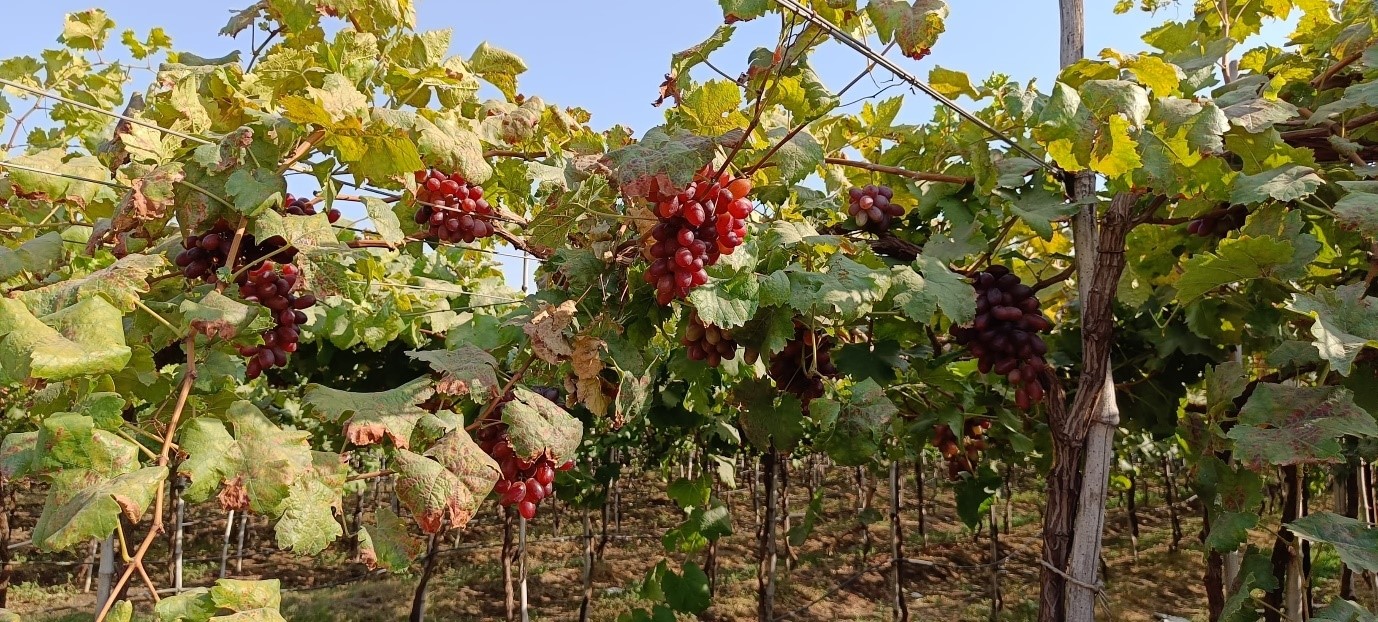
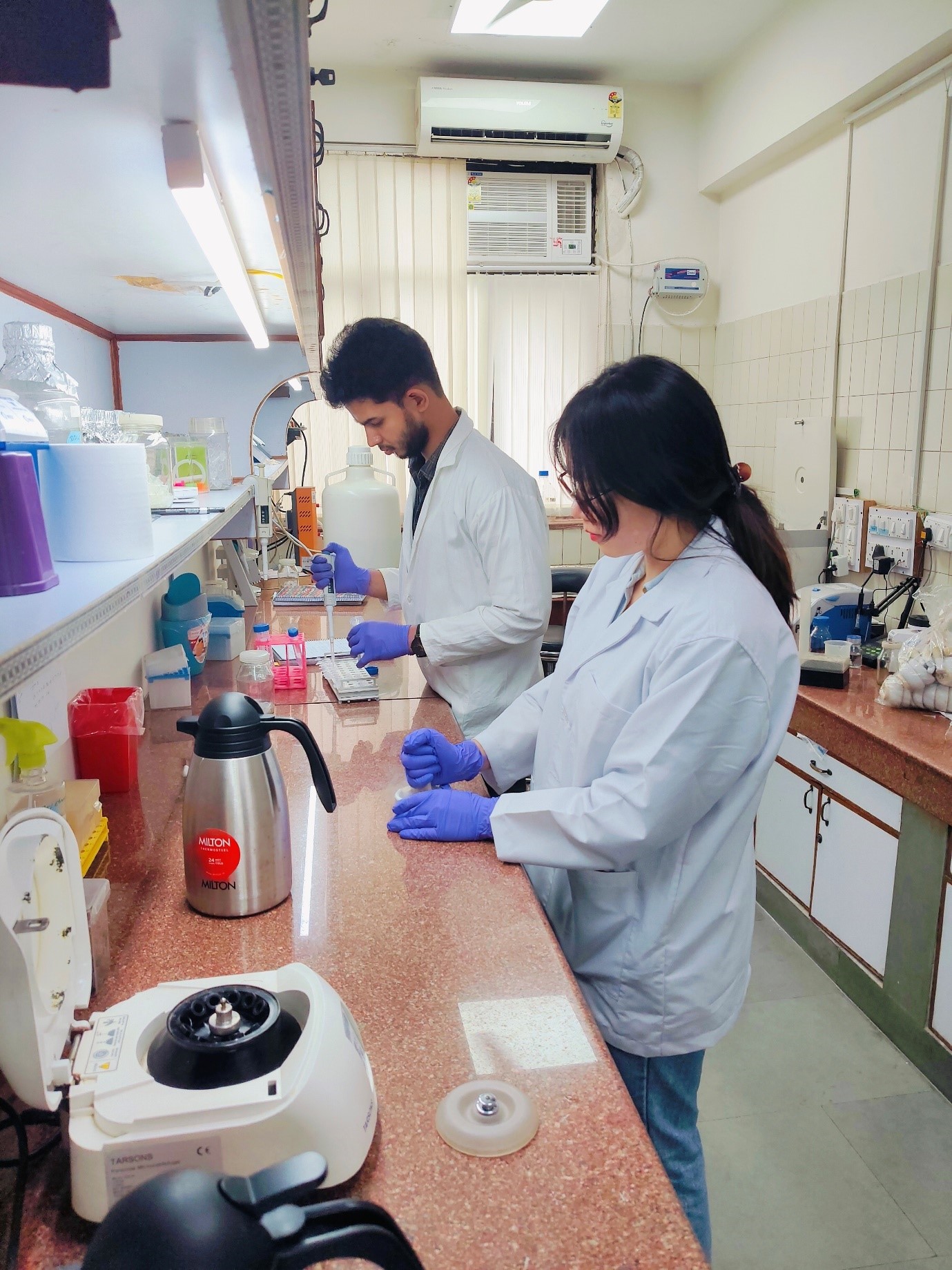
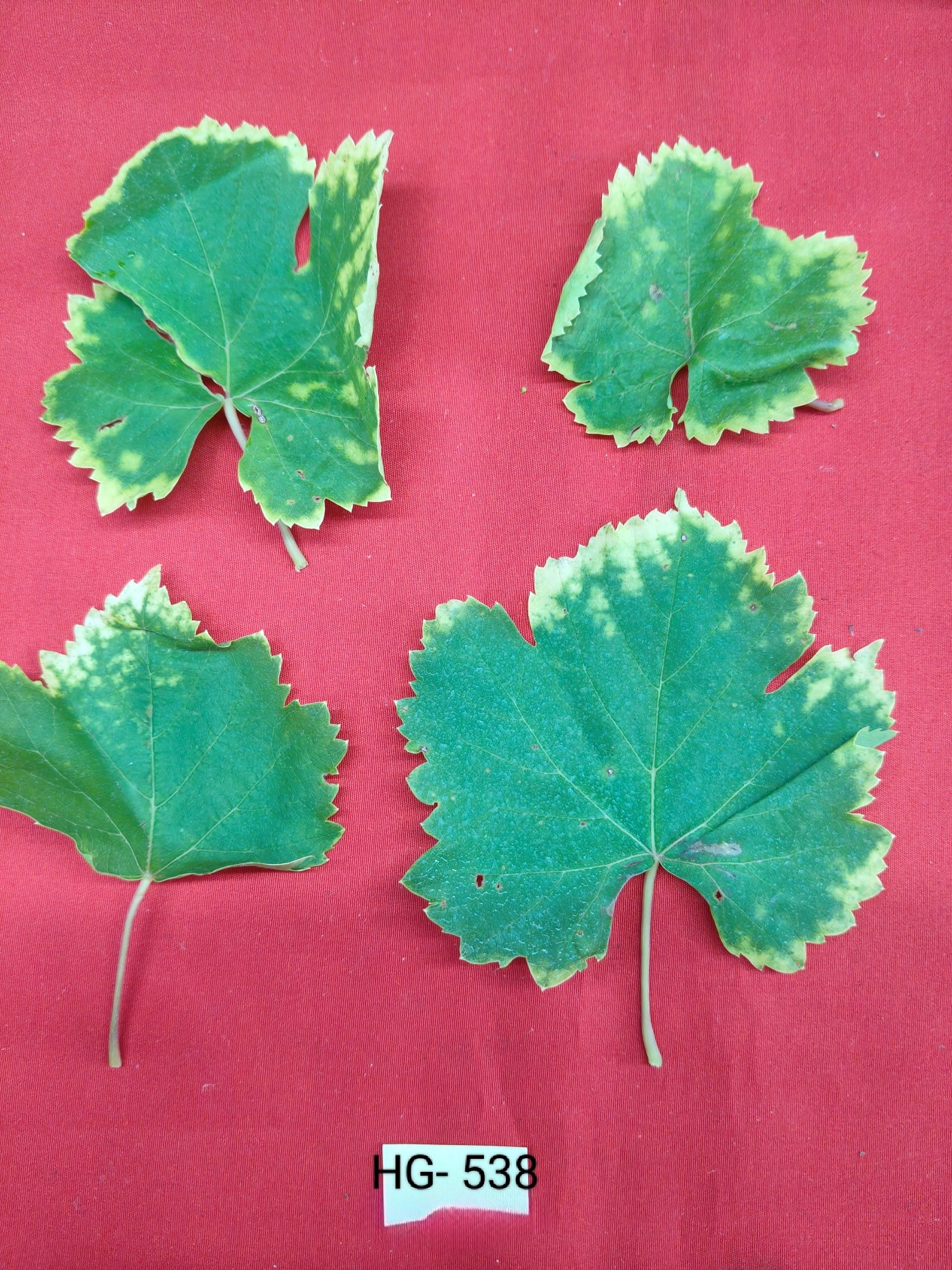
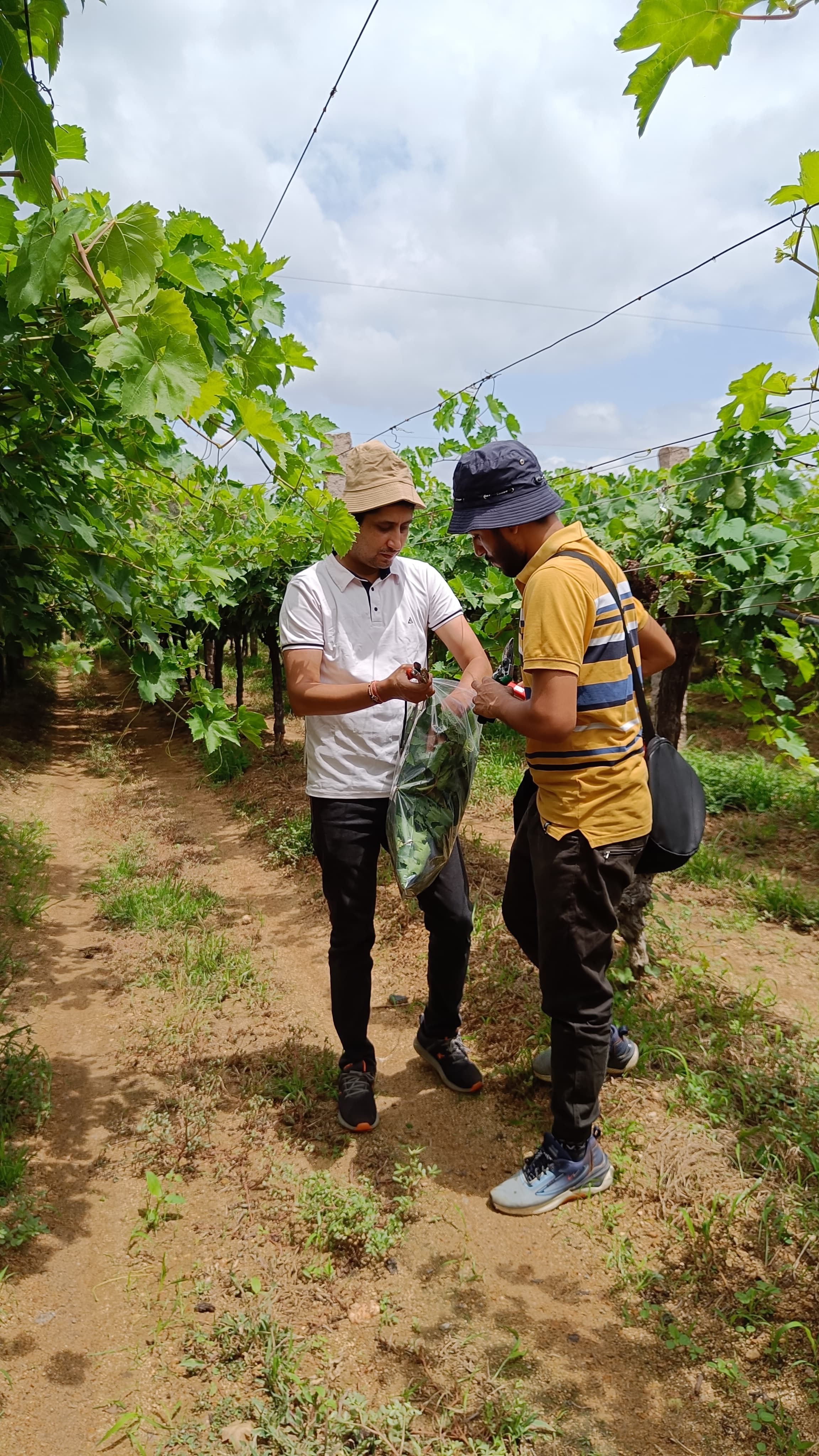
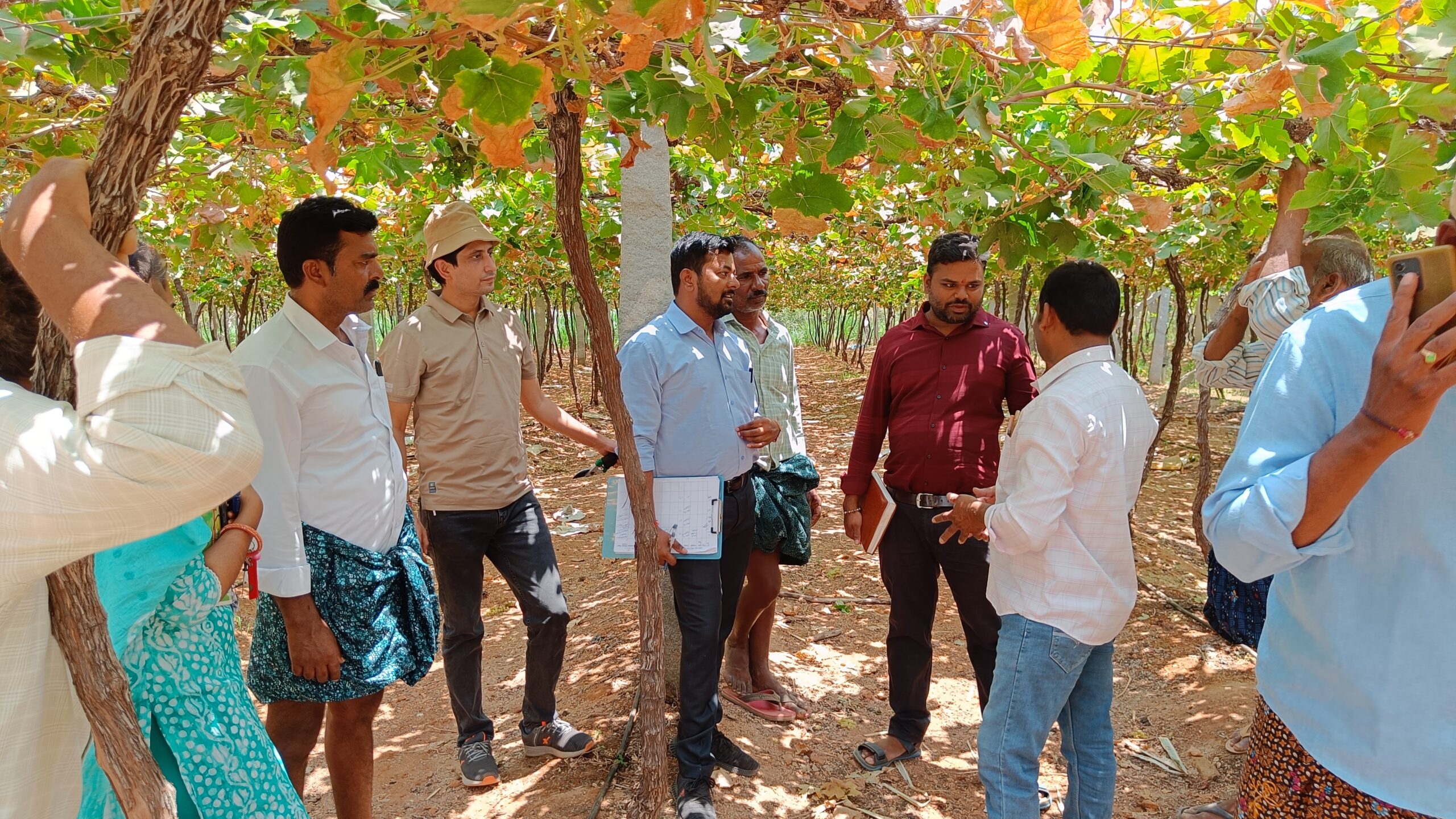
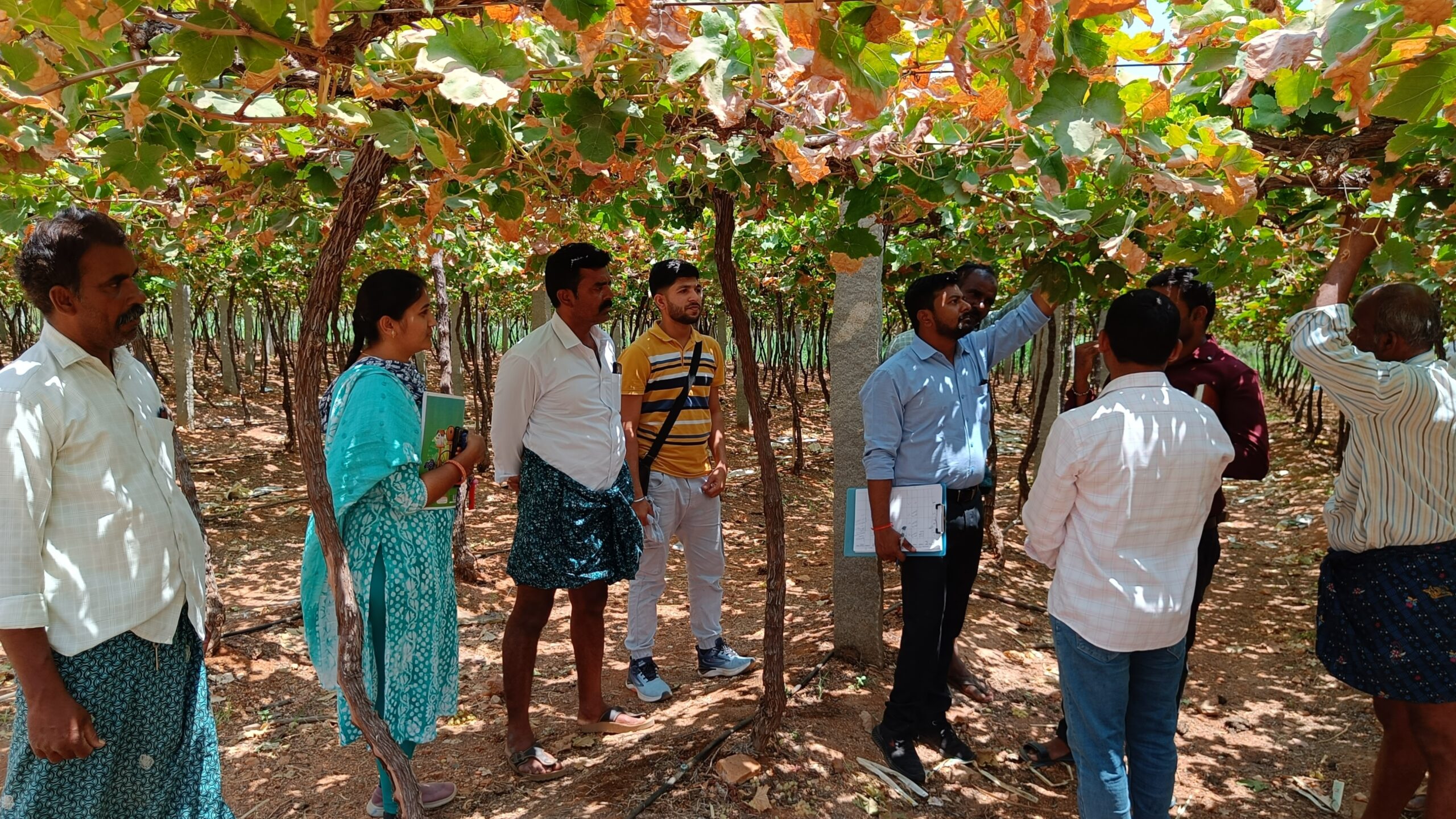






Upcoming events
No Workshops found.
No Conferencess found.
Key Note / Expert Speaker

Agricultural diversification through horticulture is vital for Viksit Bharat 2047. The Clean Plant Program ensures disease-free, true-to-type planting material, boosting horticultural growth and farmer income. ICAR proudly supports this visionary initiative, marking a major stride in transforming India’s horticulture sector for the future.
Dr. M.L. Jat
(Secretary, DARE and Director General, ICAR)

The Clean Plant Program ensures high-quality, virus-free planting stock to address declining yields and poor fruit quality. With nine world-class centers, ICAR is committed to providing clean plants to nurseries and farmers, boosting fruit productivity across diverse agro-climatic zones and promoting sustainable horticulture.
Dr. V.B. Patel
Assistant Director General (Fruits & Plantation Crops), ICAR

A clean plant program in India can improve fruit crops productivity, orchards longevity, produce quality, and boost food security. I am confident India’s agricultural horticultural sector is ready to embrace this opportunity.
Dr. Dipak Poudyal
(Plant Pathologist/Plant Health Certification Specialist, Salem, OR, USA)

Clean plant programs ensure disease-free planting material, improving crop yields and produce quality. India's adoption of such a program could boost food security and global competitiveness. With its dynamic agriculture sector, India is well-prepared for this sustainable future.
Dr. John van Ruiten
(Former Director of Naktuinbouw, the Netherlands Inspection Services for Horticulture)

The successful adoption of a clean plant program in India will uplift farmers and enhance the country’s agricultural export potential. With the right implementation and support, I am confident that India’s agricultural sector can achieve this crucial goal.
Dr. Ioannis Tzanetakis
(Professor of Plant Virology and Director of the Arkansas Clean Plant Center for Berries, USA)

Horticulture is vital for Indian farmer’s income and nutrition. India's top global horticulture producer status requires ensuring plant health. ADB supports India's Clean Plant Program, boosting plant health and biosecurity for a thriving horticulture sector.
Sunae Kim
(Senior Natural Resources and Agriculture Specialist, Asian Development Bank)

The Clean Plant Program transforms India's horticulture by providing certified, disease-free planting material. This boosts productivity, quality, and farmer incomes. It also strengthens India's global horticulture standing.
Shri Shivraj Singh Chauhan
(Hon'ble Union Minister of Agriculture & Farmers Welfare, GoI)

Plant diseases significantly impact horticultural yields, and farmers have no means to treat them in the field. The Clean Plant Program takes a system-based approach to plant health management, ensuring the availability of clean planting materials that will enhance productivity and sustainability in Indian horticulture.
Shri Devesh Chaturvedi
(Secretary, Ministry of Agriculture & Farmers Welfare, GoI)

Nine ICAR institutes will host Clean Plant Centers for key crops, using advanced technologies to supply disease-free planting material to nurseries and farmers. These centers will enhance plant health, ensure traceability, promote sustainability, empower farmers, strengthen nurseries, and boost global competitiveness in horticulture.
Dr. Sanjay Kumar Singh
(Deputy Director General, Horticultural Science, ICAR)

The Clean Plant Program aligns India with global plant health standards. By providing certified clean planting material to nurseries, it empowers fruit growers to produce high-quality crops, leading to a more sustainable and resilient fruit production system.
Shri Priya Ranjan
(Joint Secretary, MIDH, Ministry of Agriculture & Farmers Welfare, GoI)








